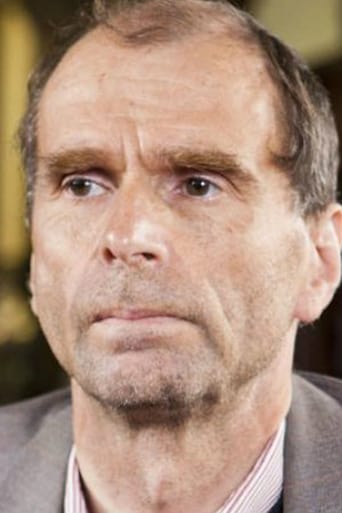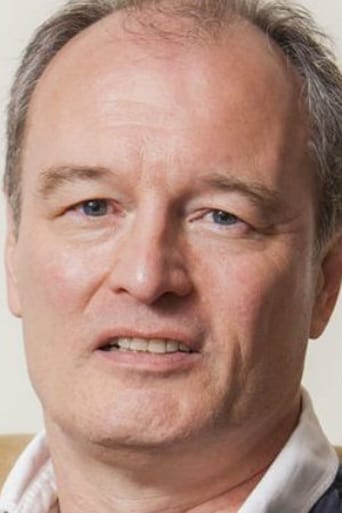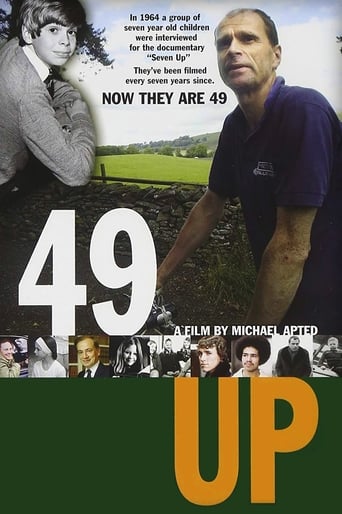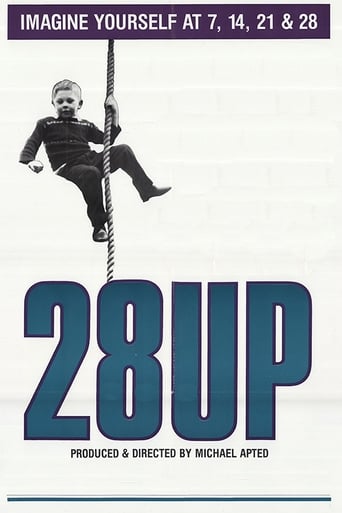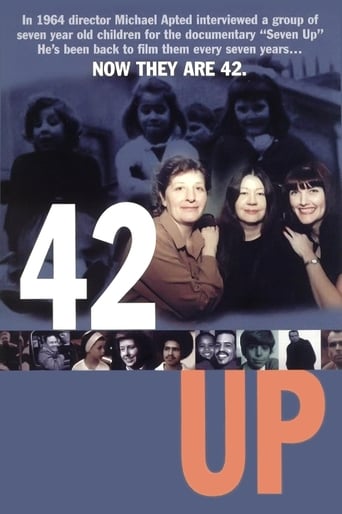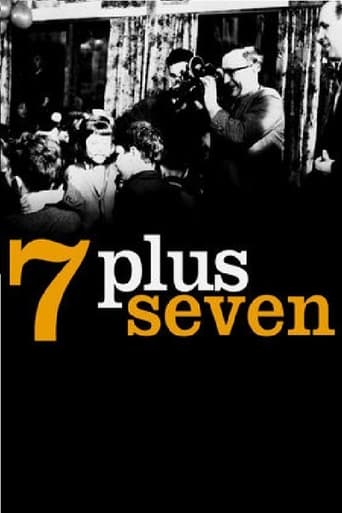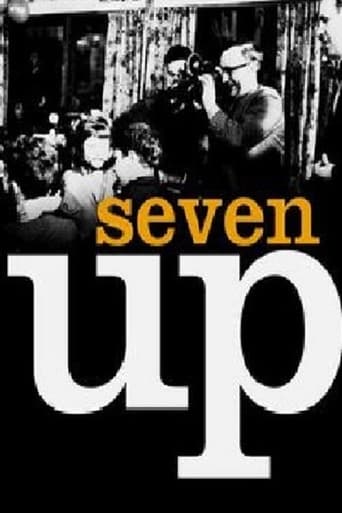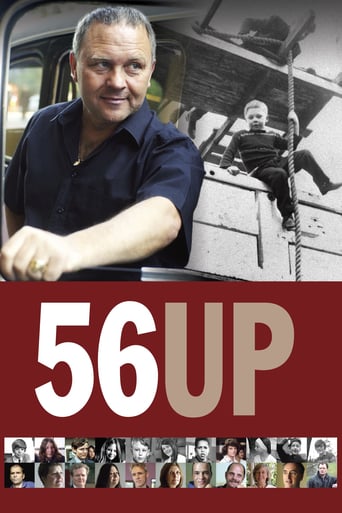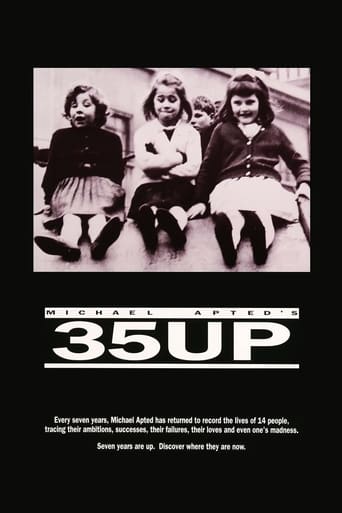
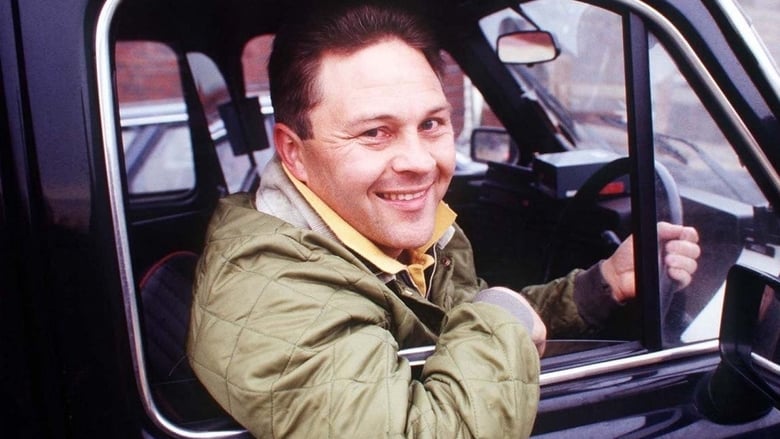
35 Up (1991)
Director Michael Apted revisits the same group of British-born adults after a 7 year wait. The subjects are interviewed as to the changes that have occurred in their lives during the last seven years.
Watch Trailer
Cast


Similar titles
Reviews
I was introduced to the series with 49 Up, and was intrigued enough by the series to start from the beginning with 7 Up/14 Up. When I got to 28 Up, I was extremely disappointed with it, which is probably why it took me about 3 years to see 35 Up. However, with the soon-to-be American release of 56 Up, it's also about time I try to catch up with this series.For whatever reasons, I think 35 Up is one of the better ones in this series. Perhaps they are just leading more interesting lives at 35 than they were at 28. Neil is of course, the most compelling person of them all, and it is fascinating that he is still so articulate about his situation that it gives us (or at least me) a better glimpse into what he feels and what he's going through. After Neil, my next favorite is Suzy, who was a spoiled brat at 14 and 21, and turned into a seemingly well-adjusted and kind person.I'll still need to watch 42 Up before I'm caught up to watch 56 Up. I sure hope they're leading interesting lives when I check back in with them at 42.
Ho-hum. This is my least favorite of the series so far. Except for Neil and Bruce (doing a teaching stint in Bangladesh), there's not much going on with these people that's surprising or interesting (I do still like Nick for some reason, but his life isn't all that thrilling). A couple of divorces, a few dead parents, but nothing that special and nothing that revealing. John is back, slightly less douchey for his humanitarian work in Bulgaria, but still obviously a twit underneath. In a rather odd turn, Symon -- the one ethnic minority of the group -- doesn't even get a mention, his existence has been completely erased from the series. Hopefully this is by his own request. The larger problem here is that the recaps are starting to overwhelm the new material. Roughly half of the film, possibly more, consists of previous clips. And it's almost always the same clips, meaning there are many parts of Seven Up that I've now seen five times. Again, this is probably best for people watching one of these every seven years, but as an at-home DVD experience it's a drag. It feels like all you really need to do is watch the most recent installment and to hell with the others. And yet, I'm moving on to the next one anyway. Despite my griping, there is an addictive quality to these films.
The 'Up Series' represents one of the most fascinating and unusual uses of film in cinema history - a documentary life-long chronicle of the lives of 14 people starting at 7 years old, revisiting them every seven years through age 49 (so far). While I could quibble, wishing for a bit more depth here and there (especially with the women, where there's a bit too much emphasis on love and marriage at the expense of all else), it's really an astounding, moving, frightening and uplifting document. There's no way to watch this remarkable series of films without reflecting deeply on one's own life, and how you have changed (and stayed the same) over your own lifetime. While Michael Aped deserves every bit of credit he's received for this amazing piece of cultural anthropology, it's important to note this first film, 7 Up,was actually directed by Paul Almond, and Apted was a that point a researcher for the project.
The fifth chapter in the ongoing seven-year cycle of documentaries catches up with all but two of the original kids, after following their development from childhood through repressed adolescence to (mostly) hopeful young adulthood, and here to a more or less stable maturity. The changes in the past seven years are less dramatic than those revealed in '28 Up', but with each new installment the series grows more rich and provocative, and seeing the latest episode is like visiting old friends.Some of the stories have taken surprising turns: the upper class snobbery of Andrew and John (who refused to appear in the previous film) has mellowed with age. Destitute Neil is doing community theater in the Shetland Islands. And the trio of friends (Jackie, Lynn and Sue), whose lives were the least interesting seven years earlier now each deserve their own separate film (one of them is suffering, with bitterness, from an obscure neurological disorder). Director Michael Apted's socio-political assumptions have long since fallen by the wayside; the series might have started as an experiment in social upbringing with an eye on class distinctions, but if anything the films prove that time is the great equalizer.



